THE READING LIST
‘I had become the strong heir my father wanted me to be’ — dancer Gregory Maqoma shares his story
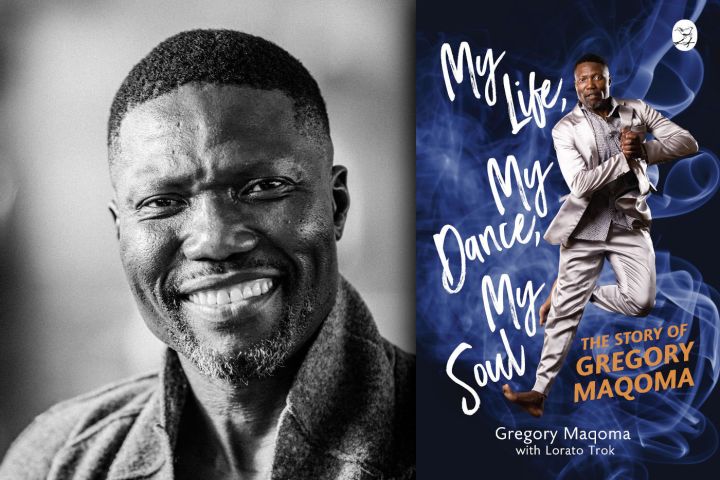
In his dazzling memoir, ‘My Life, My Dance, My Soul’, legendary South African dancer and choreographer Gregory Maqoma details his journey from Soweto to the global stage. His is a story of courage, creativity and a determined spirit.
Gregory Maqoma’s childhood in 1980s Soweto was marked by a deep connection to the rhythms of his hometown.
Growing up in a politically charged environment nurtured Maqoma’s desire to use his art to honour his cultural heritage and further his commitment to social justice.
But while he showed a passion for dance and music from a young age, his dreams went against his father’s wishes.
Maqoma will be at the Joburg Theatre on 14 October, at a morning storytelling event for children with Gcina Mhlophe, to launch his children’s book The Joy Dancer, and at an afternoon event to launch My Life, My Dance, My Soul, including the debut performance of Cion: Cothoza.
***
Losing a father – and finding forefathers
After that first African tour, I continued to teach and work, focusing on community and youth work and honing my craft as a solo artist. But my wanderlust persisted – there were still parts of the world I wanted to see. In 1998, the Performing Arts Research and Training Studios (Parts), a school for contemporary dance and choreography in Brussels, held auditions in South Africa. I applied, and was granted a scholarship for a three-year BA programme.
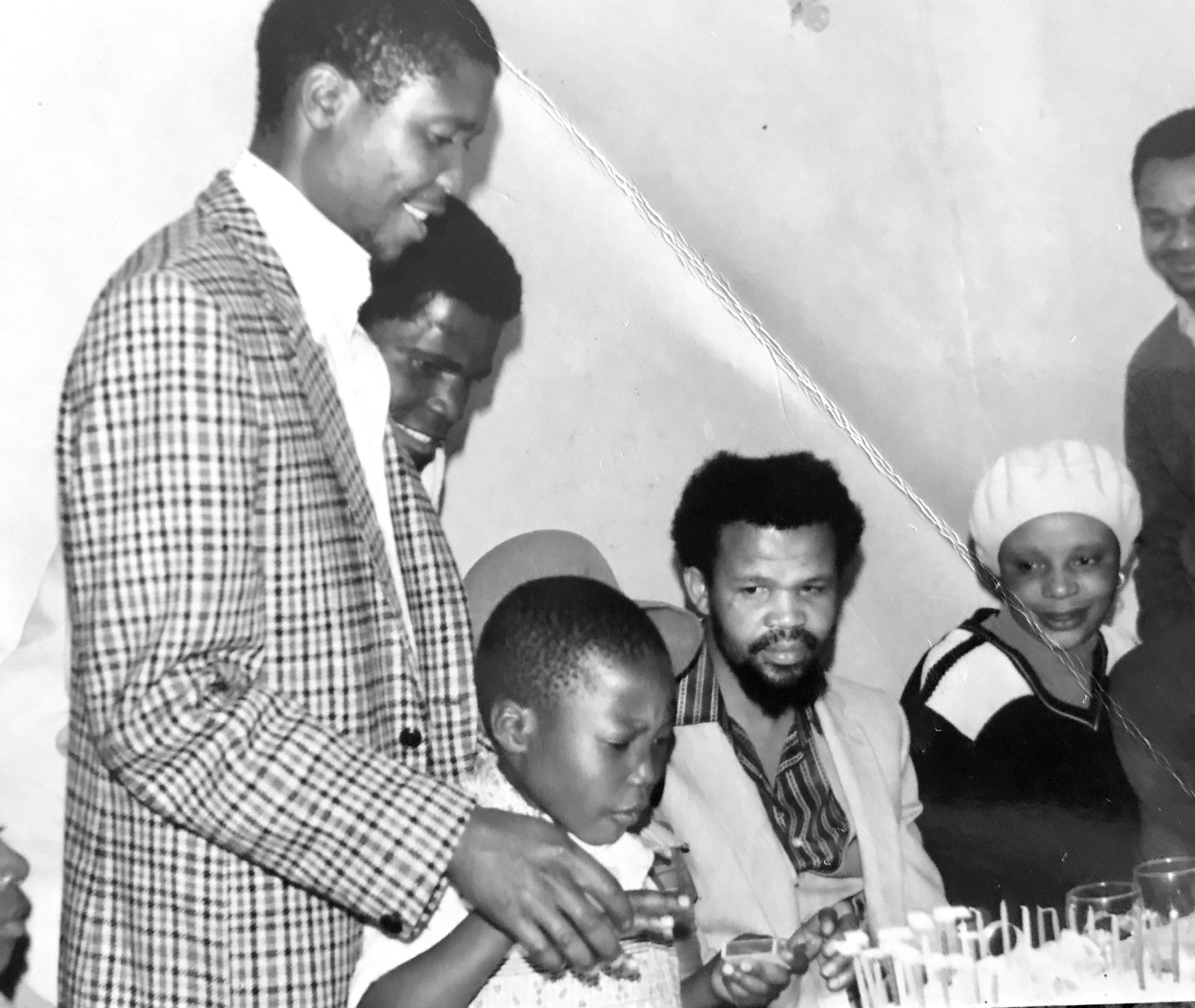
Maqoma with his father, lighting candles on his mother’s birthday cake, aged seven. (Photograph: Supplied)
The school was a hot spot for recruiters and scouts from across Europe. I was very committed, always in the studio working, and it paid off. Still a first-year student, I caught the eye of a scout from the Holland International Theatre Festival. This festival only accepted dance pieces from companies, not individuals, so I had to form a company – and that’s how Vuyani Dance Theatre was born.
Together with two other South African students at Parts, Moya Michael and Shanell Winlock, I created Rhythm 1.2.3 – the first dance piece under the banner of Vuyani Dance Theatre. I wanted to be unapologetic about celebrating Africa and move away from the dark pessimism and self-pity that is so often projected about the continent. An ode to Johannesburg and the complexity of post-apartheid South Africa, Rhythm 1.2.3 was very well received by international audiences.
My time in Belgium and then the Netherlands laid the groundwork for my international career. It was a period of incredible artistic growth, both for myself and for African dance. The world was opening up to a new wave of creatives who would go on to shape the next two decades of contemporary dance.
But even so, my place in South African theatre was a work in progress when I returned from Europe from the scholarship. Local theatres did not think that dance would sell – especially as such performances were an unfamiliar experience for many black South Africans, who’d been cut off from cultural resources and institutions during apartheid. Joburg Theatre in particular was a tough nut to crack – but Vuyani Dance Theatre broke that barrier when, in 2014, it brought the first contemporary Black choreography to that venue; it was also the first South African Black dance company to present a season on the theatre’s main Mandela stage.
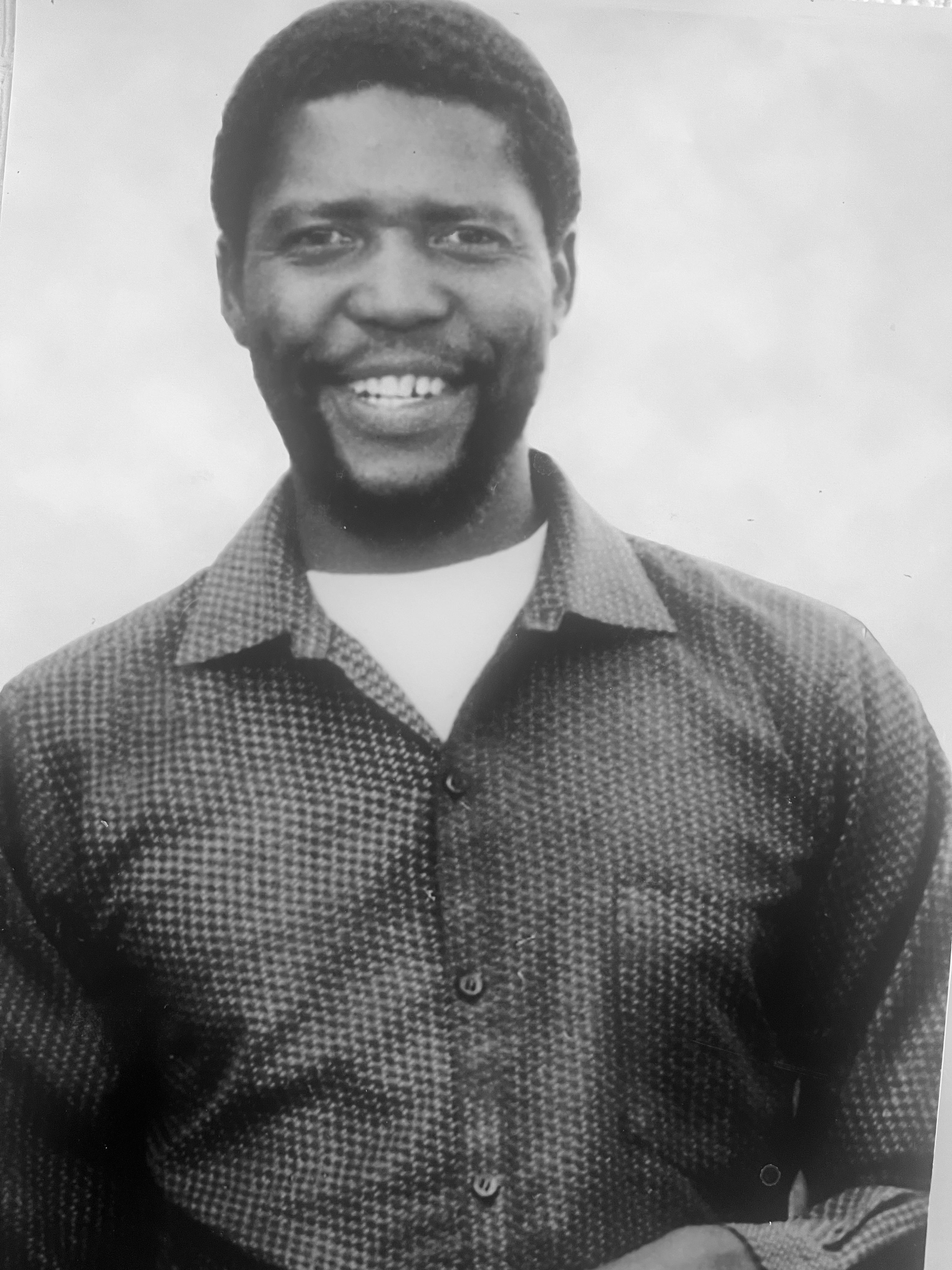
Gregory’s father, Peter Lizo Maqoma, late 1990s. (Photograph: Supplied)
From the start, international audiences had a lot of interest in my work, and they remained enthusiastic. The audiences that propelled me to stardom and filled theatres for my work were mainly in European countries, where dance and theatre were long established and taught. Back in South Africa, I continued to get invitations from France and other European countries. And I made more new work all the time, because I knew there would always be support in that part of the world.
As Vuyani Dance Theatre gained respect, the founding members, myself and Shanell Winlock Pailman, were building a reputation as a ground-breaking duo who pushed theatrical boundaries. One of our first significant works was Southern Comfort, which premiered in London in 2001 as part of the Celebrate South Africa Festival, under the eye of then UK South African High Commissioner, Cheryl Carolus. It was at this festival that I connected with British choreographer Akram Khan, who invited Shanell to join his company. Shanell and I maintained our connection and where possible would perform together. Shanell now works with Vuyani as movement analyst, mentor, dramaturgist and choreographer. Our friendship and collaboration over the years has been amply rewarded with awards for dance and choreography.
In 2009, on the crest of this wave of success, I was on a residency at Bates College in Maine, teaching and developing work. It was a beautiful summer morning, and I’d woken to seven missed calls, some from numbers I did not recognise. Outside, the early birds were serenading me. Looking at these odd numbers, my heart rate sped up and the hair on my arms rose. I felt like a ghost was moving through my space. I thought at once of my grandmother, who was ailing.
I tried to push away my feeling of foreboding. Sitting on my bed, I started to plan my class for the day. Soon my thoughts were absorbed in the work, dance sequences building in my mind. Then the phone rang again, one of the unrecognised numbers shining brightly on the screen.
I answered, but could only get to “hello” before the call cut off. I sank back on my bed, unsettled, my mind running like it does when something is not completely accomplished, or my creative ideas are not coming together. I decided to use my long-distance call card, which I usually used to call my mother. On the line, I heard my 17-year-old brother’s voice – but he wasn’t paying attention. Multiple voices were in the background, cries of men and women and a dog barking, which I recognised as my mother’s dog. In the commotion I dropped the call, worried that I’d run out of credit without establishing what was going on. I dialled the second number on the list of missed calls.
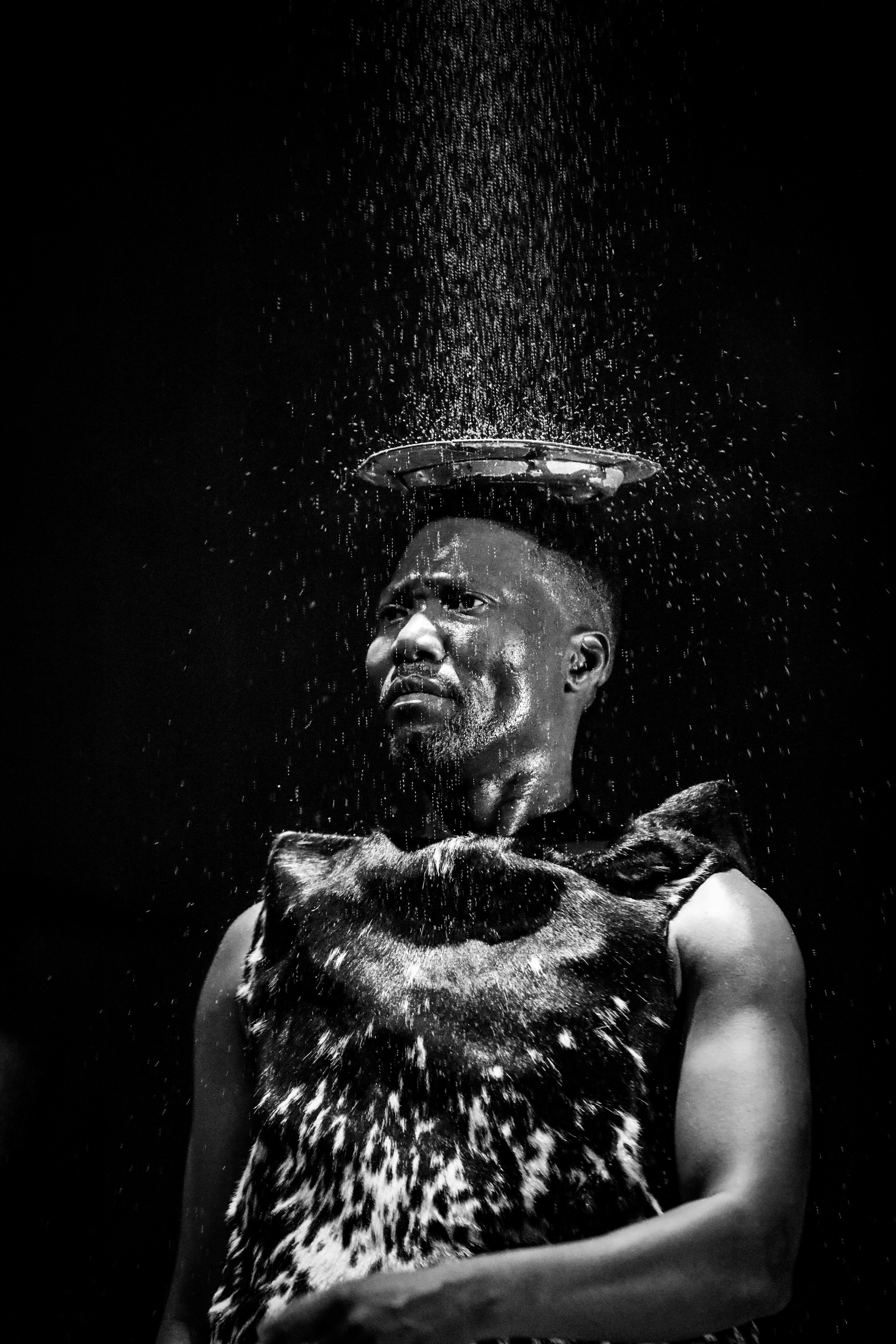
Maqoma dancing in Exit/Exist. (Photo: Arthur Dlamini)
“Who is this?” said a voice. It was my young cousin Zanele. In the background, the same voices and cries. “Greg is that you, Mamela – listen, Papa Lizo passed on …”
At that moment, all sounds ceased. The breath left my lungs.
“Greg? Are you there?”
Nothing but silence; nothing but the sound of birds in the trees outside.
My father was gone.
I travelled home to bury him with dignity, and to be there for my mother and siblings. I did not want to carry the burden of not burying my father: as the new head of the family, and in Xhosa tradition, the expectation was that I would lead the proceedings. I was also the family’s sole breadwinner. I comforted myself with the thought that in the end, I had become the strong heir my father wanted me to be, even though it was not through a medium he deemed worthy.
I thought about my father’s passing, and how he died without leaving an inheritance. It made me think more seriously about my own legacy. And this is what led me back to my grandmother’s old stories – and to the figure of my illustrious ancestor, Chief Maqoma. DM
My Life, My Dance, My Soul: The Story of Gregory Maqoma is published by Jacana Media (R220). Visit The Reading List for South African book news, daily – including excerpts!







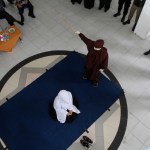










 Become an Insider
Become an Insider
Comments - Please login in order to comment.